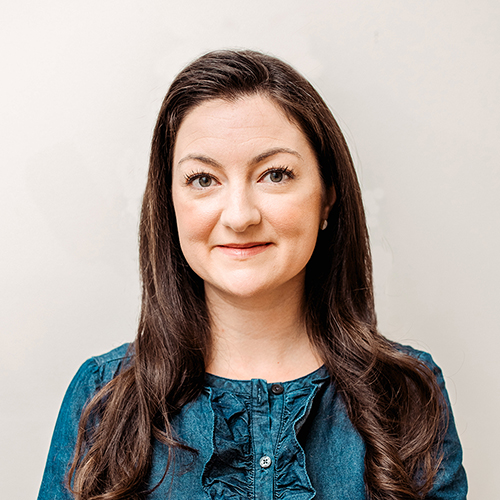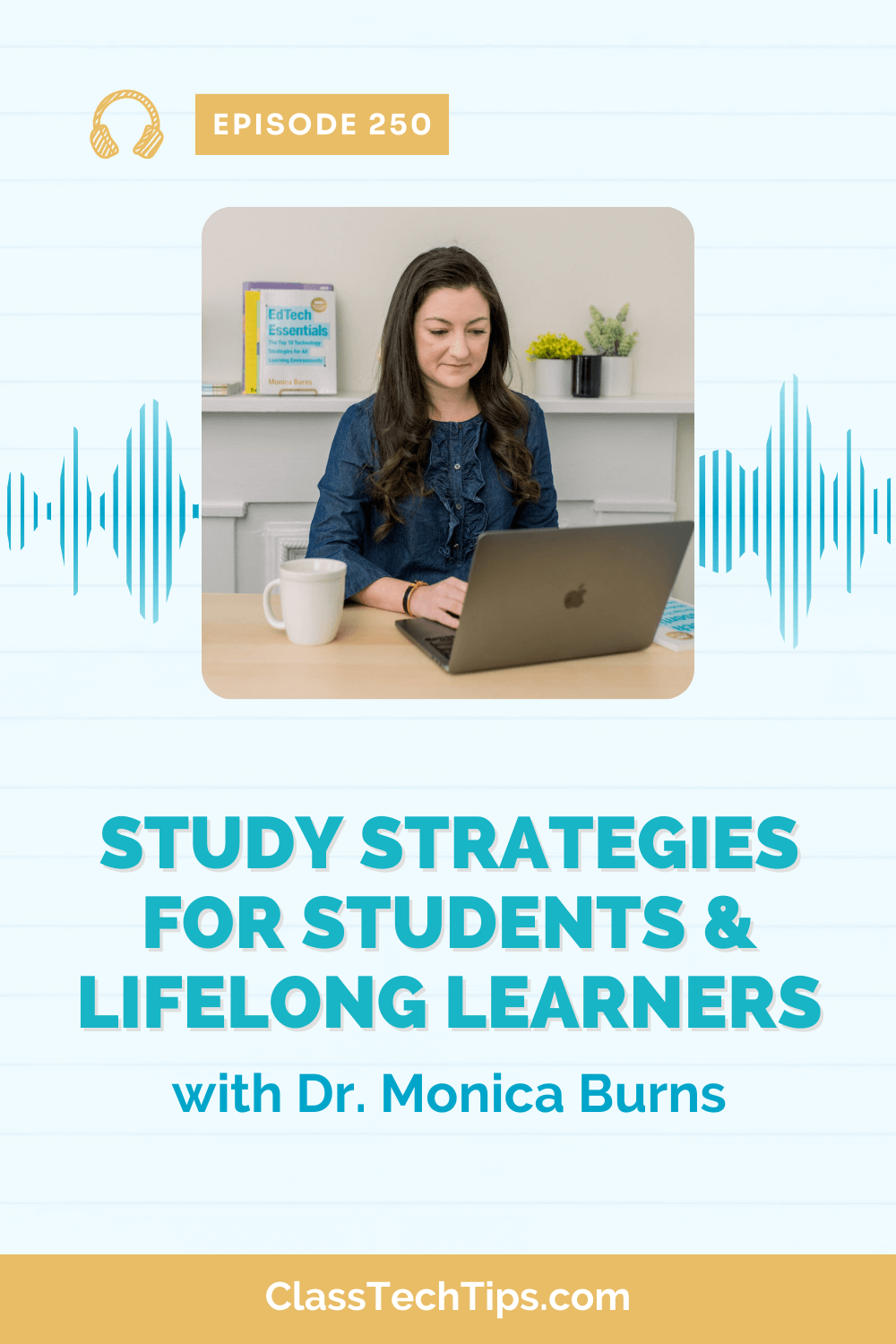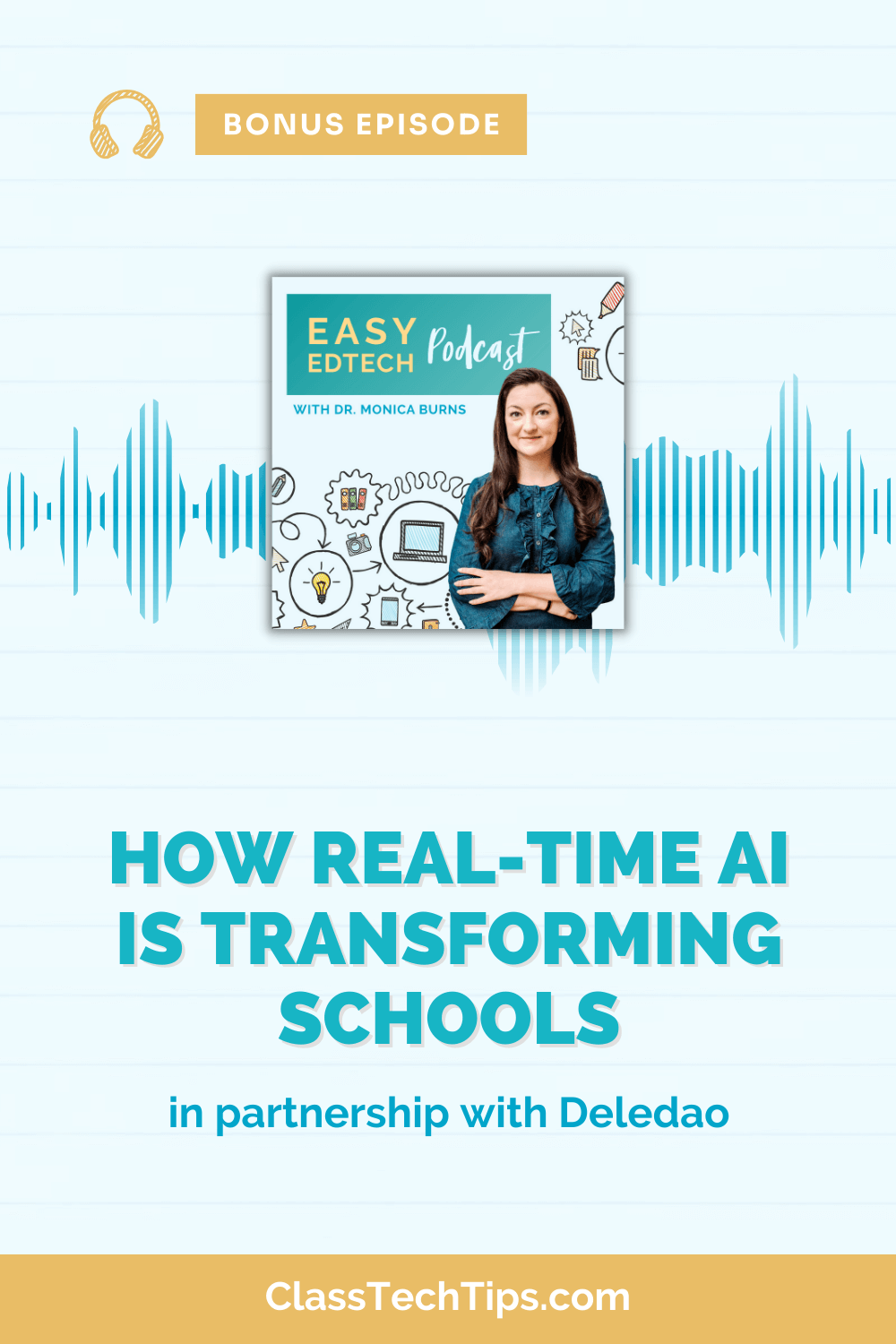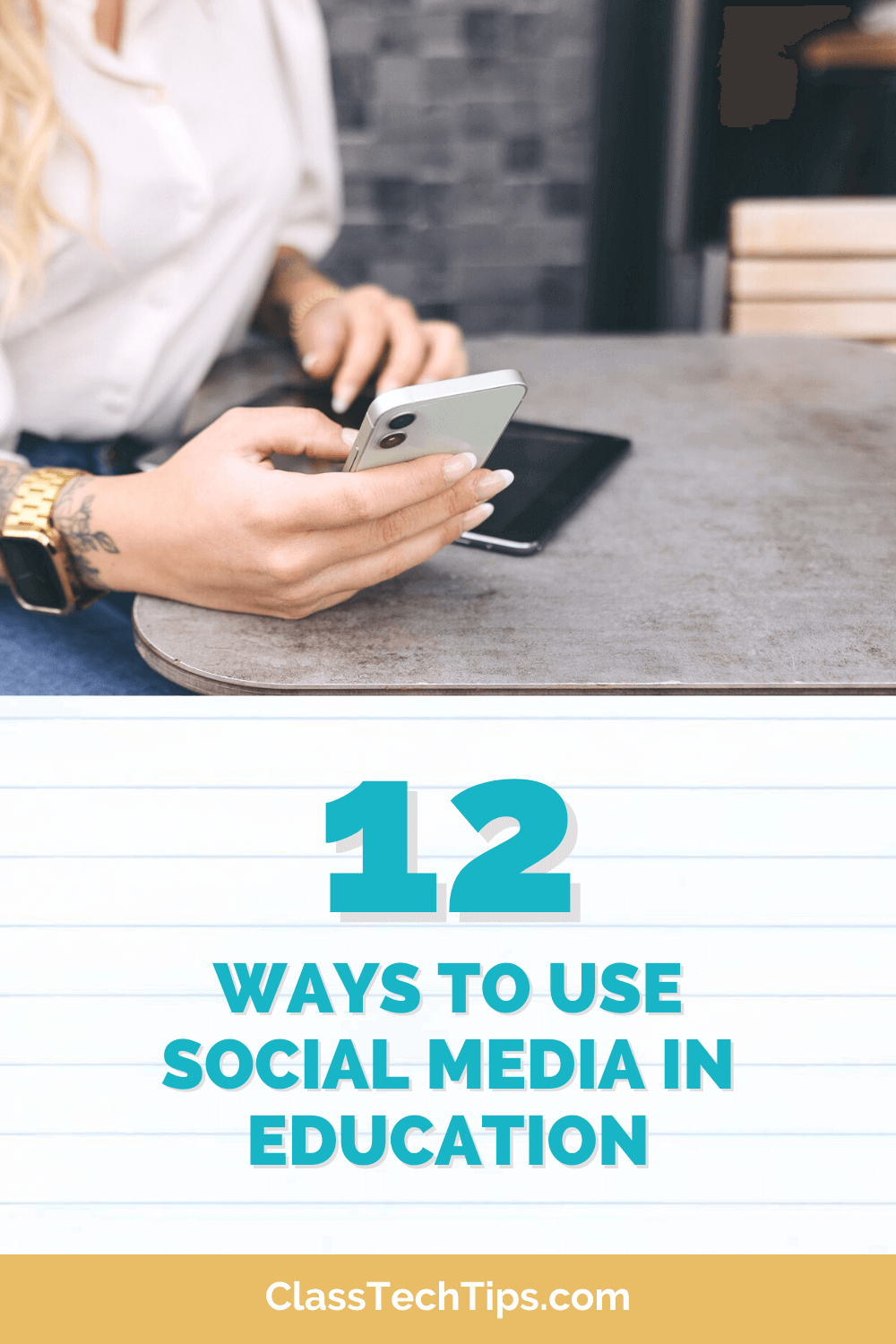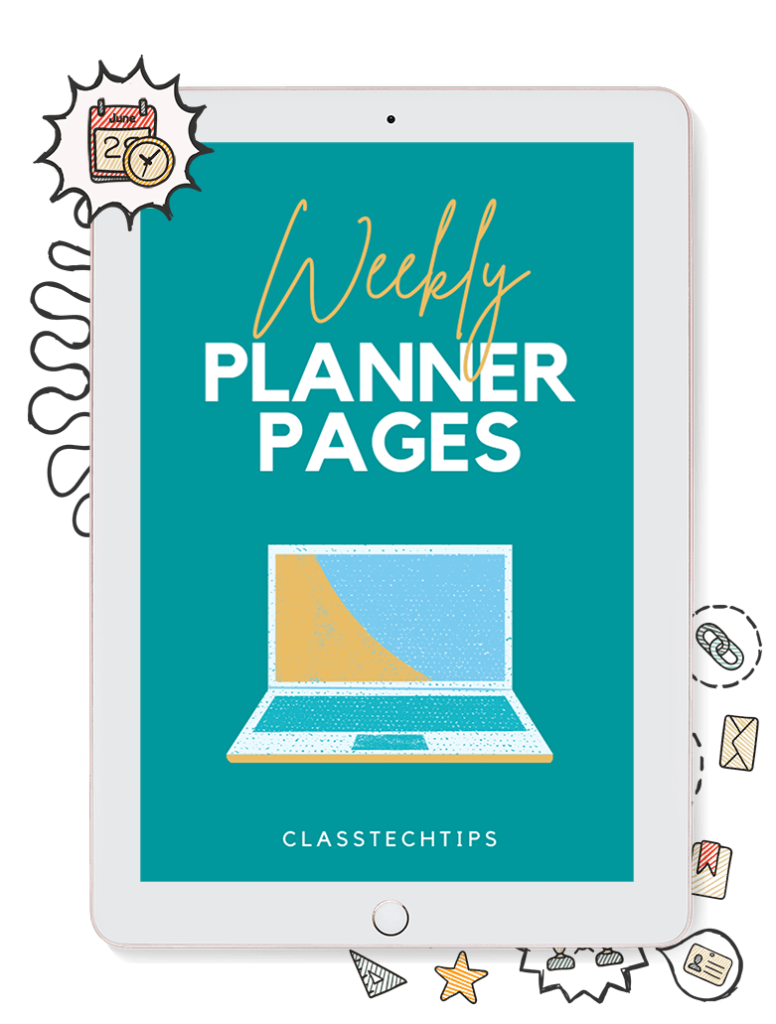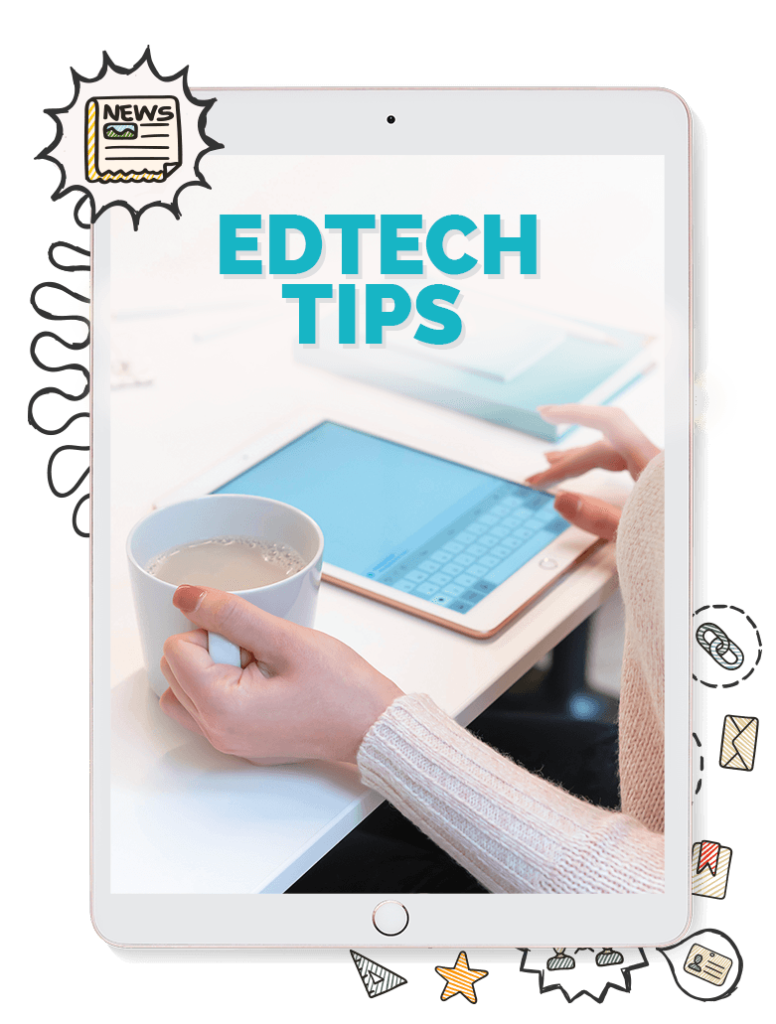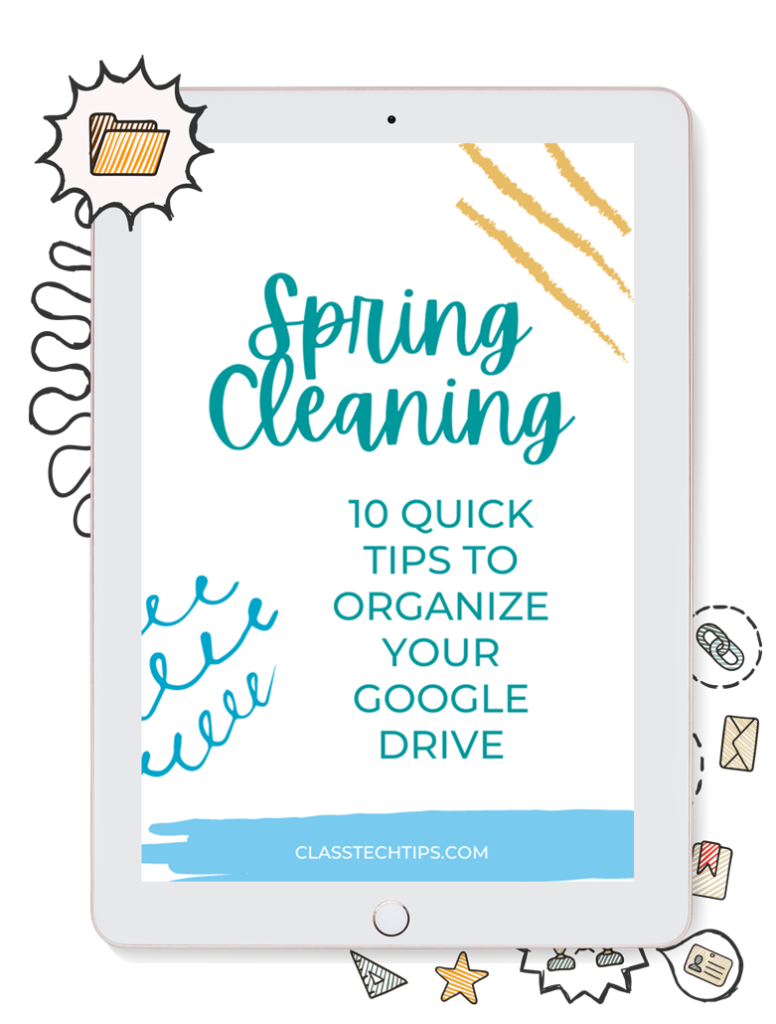Where can you go to find free multimedia lessons to help students practice saying NO to risky behaviors? April is Alcohol Responsibility Month, a great time to introduce thinking and discussion to help students master refusal strategies. Although saying NO is important, kids need to know why they should say NO to risky behaviors like underage drinking.
This April, the resources from Ask, Listen, Learn are perfect for helping students understand why to say NO. In this blog post, I’ll take you through their free resources, including information you can share with students and families!
Check out the free resources >>
Alcohol Responsibility Month Resources
This past year has been challenging for so many students and their families. Certain conversations might have been avoided entirely or just not taken priority. With April being Alcohol Responsibility Month, it’s an excellent time to take a step back. You can examine how we are helping students practice saying NO to underage drinking. But saying NO doesn’t have to connect to only alcohol consumption. It can include finding ways to say NO to all types of risky behavior, even underage cannabis use.
What does it mean to help students learn to say NO? Saying NO might be the end goal, but students need to know why they should avoid risky behaviors. To help students find the why, Ask, Listen, Learn has multimedia resources you can introduce to kids in grades 4-7. This includes videos and supplemental activities.
Free Multimedia Lessons
Responsibility.org’s Ask, Listen, Learn resources are all about brain science and tackling the question, How does alcohol affect the developing brain? They have a series of video resources to tackle this question, including the one linked here (and embedded below). As you can see in the video, their resources are designed to be student-friendly. Each video helps explain big concepts in ways that resonate with kids.
In addition to the video above, there are resources that highlight all parts of the developing brain. For example, if you click on the lesson for the Medulla, you’ll find a video that unpacks how this part of the brain is affected by underage alcohol consumption. There is also a companion lesson plan overview, comprehension questions, a vocabulary list and cards, and standards alignment.
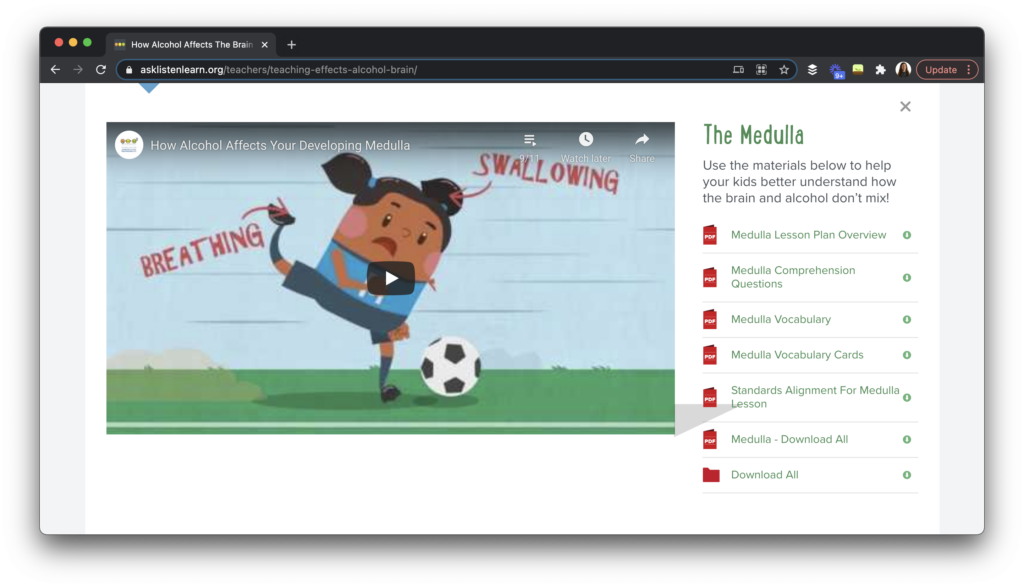
What do the lesson plans include? Each lesson plan consists of a summary of what that particular part of the developing brain is affected by underage drinking. It lists the lesson objectives and takes you step by step through how to lead an activity and conversation. I like how the lesson resources break down each activity along with timestamps. This feature makes it easy to use the lessons “as is” or customize it for your group of students.
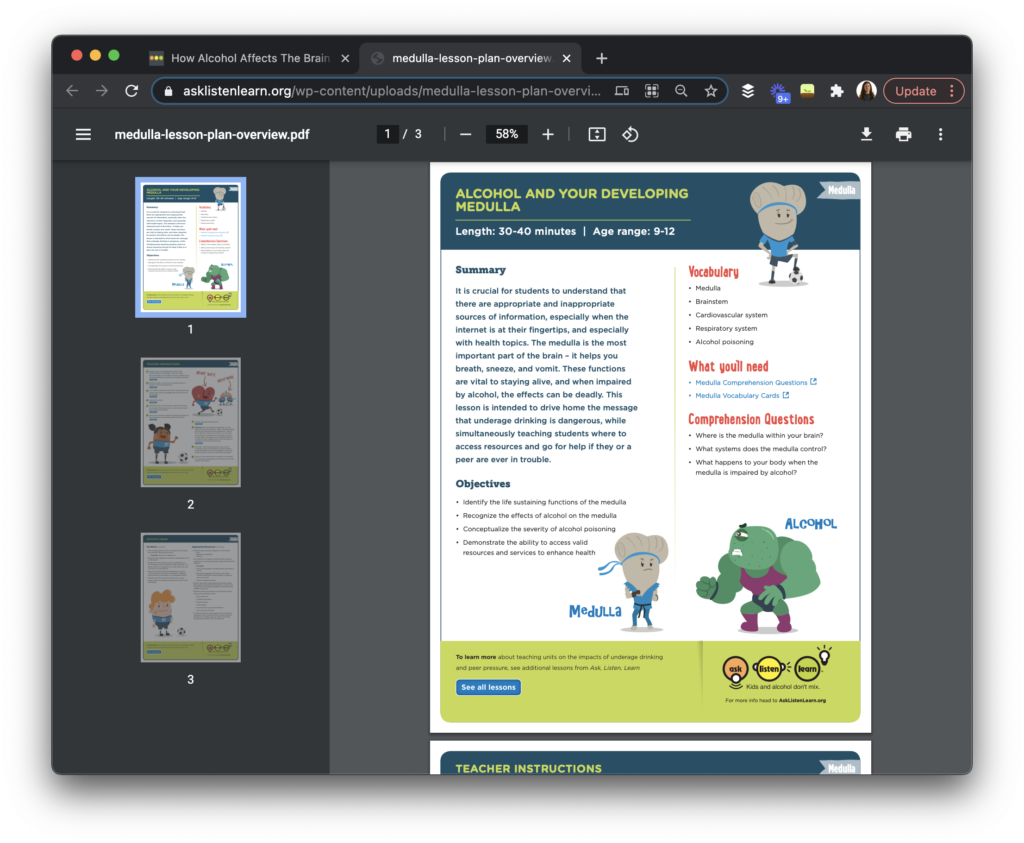
Leading students through a discussion on a topic like saying NO might feel intimidating. So I love how these resources give you everything you need for these important conversations. The lessons also have extra resources so you can make connections to other parts of your day. You might weave in these teachable moments into a social studies or science activity.
Family-Friendly Resources for Alcohol Responsibility Month
Not only has the team behind Ask, Listen, Learn included all of these comprehensive resources for teachers and students, but there are lots of family-friendly resources on their site, too. You’ll find items on this landing page you can quickly download and use as is — or use as inspiration for your own family-friendly resources.
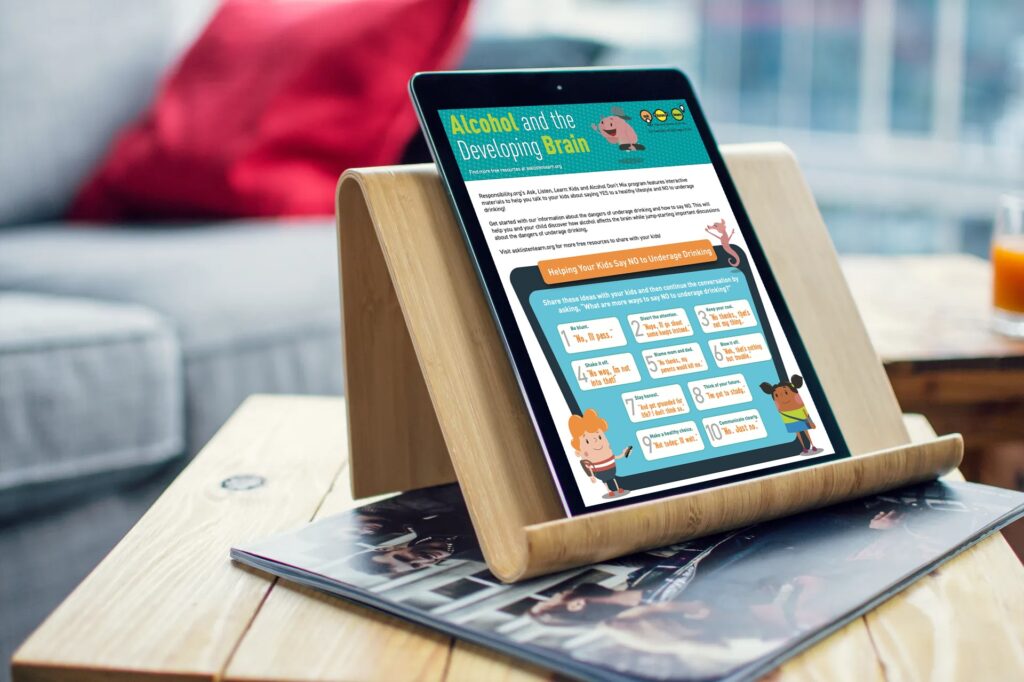
This includes a PDF poster on 10 Ways to Say No to Underage Drinking and letters to families on underage drinking and underage cannabis use. There is a letter for counselors to share with teachers, which is perfect for kicking off a program spearheaded by a group of counselors at your school. You’ll also find an additional downloadable document with tips for parents and a chart with standards alignment on this landing page. The lesson plans and video content from Ask, Listen, Learn supports Common Core State Standards, National Health Education Standards, and Next Generation Science Standards (Life Science).
Once students have mastered refusal strategies for themselves, they can also practice standing up for their classmates or helping their classmates make good decisions, too. You might use these free multimedia resources from Ask, Listen, Learn to kick off new conversations or extend conversations you’ve already started with students. Dive into the free lessons right here!

